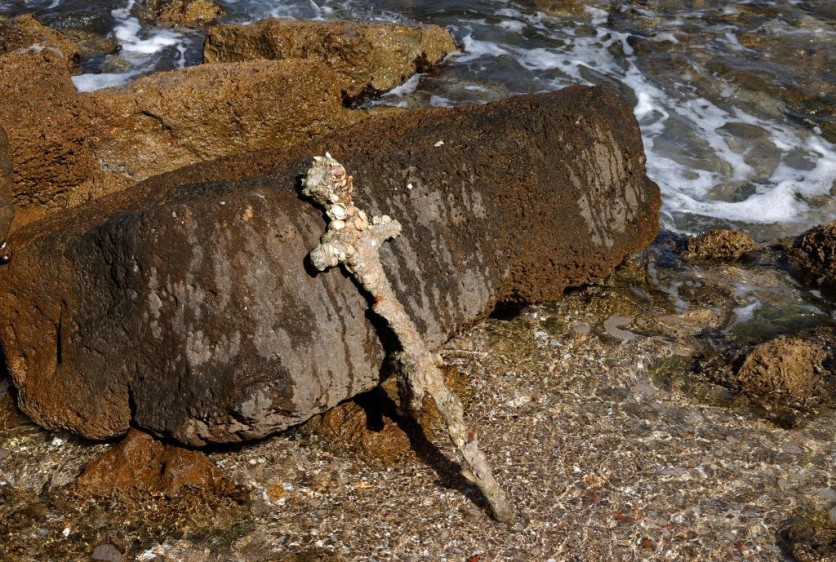A rare sword from the Kalmar War's early 17th century has been discovered by archaeologists from Arkeologerna, according to a report by Heritage Daily.

17th-Century Sword
Archaeologists from Arkeologerna have unearthed a stone cellar in Kalmar's old town at the intersection of the Kungsgatan and Västerlnggatan roads.
The cellar may have been a component of a medieval farm, which suggests that Gotskalk Hulskede owned it in 1368, based on comparisons with contemporary records, according to the research team.
Although the property is mentioned in other sources as early as 1483, it appears to have been burned down in the summer of 1611, at the height of the Kalmar War.
Two severely burned hand grinders, a pile of charred grains, and broken brick, stone, and wood that are believed to be from the top floors of the houses covered the cellar's floor.
The team discovered a rare Danish blade while removing the collapsed material. According to experts, it demonstrates the transition from a medieval sword to more contemporary designs that would eventually rule the 17th-century battleground.
"At the time of the Kalmar War, the European armies were at a turning point - the military revolution - where new tactics and weapon systems were being tested. This find fits well into the arsenal of the time," Arkeologerna said in a statement.
Read also : Archaeologists Discover Signs of Ancient Human Civilization in the Depths of Lake Constance
The Kalmar War
The Kalmar War, also known as the Kalmar Conflict, took place between Sweden and Denmark-Norway from 1611 to 1613. Recurrent disputes over trade routes were the root cause of the war due to Denmark and Norway's monopoly over the strait separating the Baltic Sea and the North Sea.
Sweden attempted to build a new route via Lapland to avoid paying a toll on the use of the Øresund, or "Sound" strait, which in the 16th and 17th centuries made up to two-thirds of Denmark's state revenue, as per Heritage Daily.
Danish and Norwegian King Christian IV objected to the proposed route but was ignored by Swedish King Charles IX.
Denmark-Norway eventually declared war on Sweden in April 1611 in reaction to Sweden's claim of a traditionally Norwegian region in Northern Norway.
6,000 Danish soldiers were dispatched to Kalmar to occupy the city and castle. The city and fortress of Kalmar controlled the Kalmar Straight and passage to the north along the Swedish east coast into Stockholm for centuries, earning Kalmar the nickname "the key to Sweden."
The Peace of Knäred was signed in January 1613 as a result of the Danes' failure to entirely defeat the Swedish forces despite their capture of the city.
Related Article : Archaeologists Find Possible Remnants of Medieval Thames River Under the Palace of Westminster
This article is owned by Tech Times
Written by Jace Dela Cruz
ⓒ 2025 TECHTIMES.com All rights reserved. Do not reproduce without permission.




